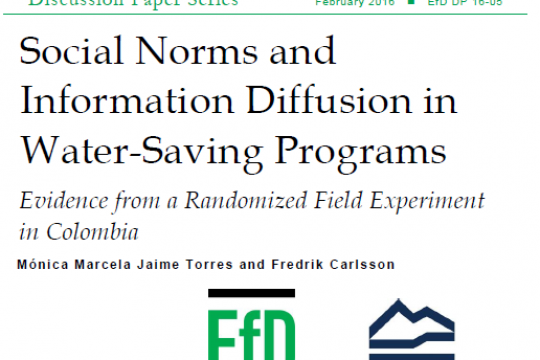This paper investigates direct and spillover effects of a social information campaign aimed at encouraging residential water savings in Colombia. The campaign was organized as a randomized field experiment, consisting of monthly delivery of consumption reports, including normative messages, for one year. Results indicate that social information and appeals to norm-based behavior reduce water use by up to 6.8 percent in households directly targeted by the campaign. In addition, we find evidence of spillover effects: households that were not targeted by the campaign reduced water use by 5.8 percent in the first six months following the intervention. Nevertheless, neither direct nor spillover effects can be attributed to social networks for any of our chosen proxies of social and geographic proximity.


